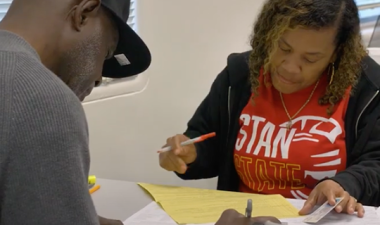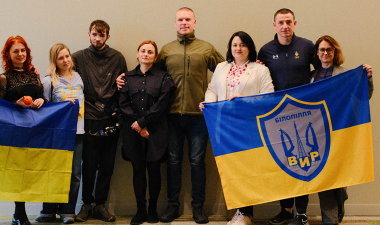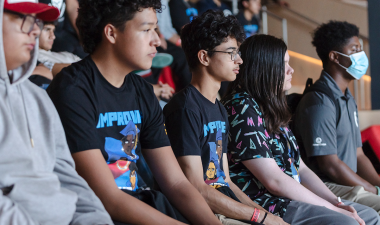Male students of color looking to engage in brave spaces to talk about issues and gain friendly guidance from role models who understand their challenges need look no further than the Barbershop Talks series hosted by the Male Success Initiative (MSI) at Stanislaus State.
The talks bring students together with faculty, staff members and alumni of different generations in a supportive atmosphere where speaking openly and candidly is encouraged. Some talks are coordinated by MSI’s Black Men’s Alliance and tailored to address the Black American experience, while other talks are intended for a wider group of males of color.
“The premise is that when men go to the barber, that’s one of the few times when they have random, open conversations about life with other men,” said Miguel Jimenez, coordinator of the Male Success Initiative. “These talks are basically a healing circle. We have very free and open discussions about any issues that are affecting men, not only on campus but in society. It’s a place where men can come together and discuss how to navigate life.”
Hosted on Zoom, the next Barbershop Talks are scheduled for 3 p.m. Wednesday, Feb. 10, and 2 p.m., Wednesday, Feb. 17. The series was launched last October, and past talks have attracted as many as 15 participants per session.
Jimenez credits the idea for Barbershop Talks to Stan State’s Troy Johnson, head track and field coach, and Wayman Strickland, head women’s basketball coach. They have joined with Marvin Williams, director of Disability Resource Services and advisor to the Black Student Union, and MSI intern Isaac McCrimon to be regular participants and instrumental to the success of the talks.
“Coach Johnson and I thought this would offer male students, primarily Black male students, a comfortable, safe and inviting space to gather, encourage each other and feel heard,” Strickland said. “A lot of times our young people, just in general, feel disenfranchised, not heard and not cared for. It’s not good for anybody to be walking around with those emotions and feelings bottled up. It’s far easier for individuals to be successful when they feel heard and encouraged, when they’re happy and they feel supported.”
As coaches, Strickland and Johnson have extensive experience mentoring athletes and saw a clear need for on-campus mentoring specifically for Black male students and other male students of color.
The Barbershop Talks series is a first step toward providing those much-needed mentoring services, according to Jimenez. As participants get to know each other in the talks, they will likely form one-on-one mentoring relationships that will help students find success academically, in their personal lives and, ultimately, professionally.
For Johnson, leading students to fulfilling careers and teaching them to give back to their community is one of the key motivators for his participation in the talks.
“There is something I say to my student-athletes all the time: It’s my goal, my hope, my intention to get them to a career, not just a job,” he said. “Everybody has had a job, but we want to get them to a career and help them find success in every aspect of their lives.”
In the long run, Jimenez expects MSI, the Black Men’s Alliance and the Barbershop Talks series to attract more males of color to Stan State to pursue higher education.
“When high school students of color look at Stan State, we want them to see people who look like them and opportunities for them to succeed,” he said. “We want them to see it’s a friendly and trusting place with support systems in place that will help them on their road to success.”


